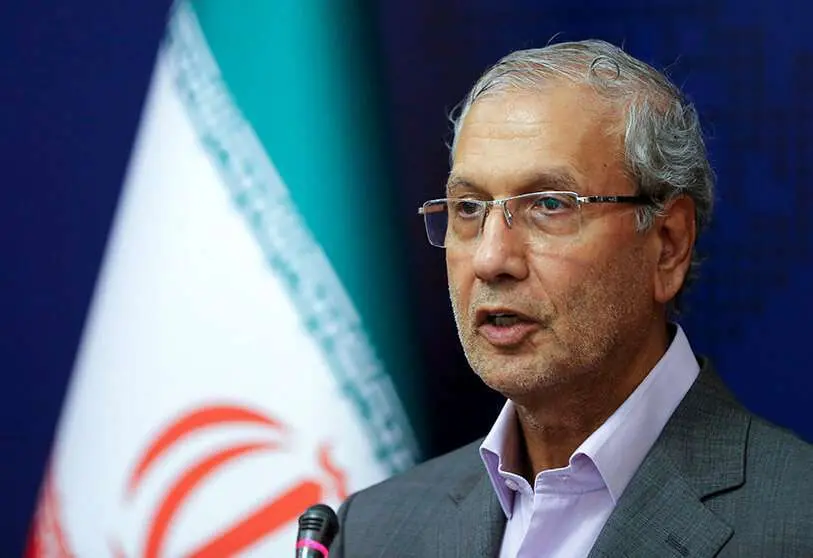Talks with US face difficult but not impossible hurdles, Iran says

Iran says talks with the United States are not deadlocked, but difficult issues remain. It believes the barriers to reviving the 2015 deal with world powers are not insurmountable, however they are complicated. Iranian spokesman Ali Rabiei denied that negotiations have stalled and on Wednesday, Iranian President Hassan Rohani said the main issues between Tehran and Washington have been resolved in the ongoing nuclear talks in Vienna, the official IRNA news agency reported.
Negotiations have been going on since April in Austria between Iran and six powers for Tehran and Washington to work out, respectively, measures on nuclear activities and sanctions, so that the 2015 pact, formally known as the Joint Comprehensive Plan of Action (JCPOA), can be resumed. "Today, we witness the resolution of important issues with the United States," Rohani told the cabinet meeting.
"There is no deadlock in the Vienna talks," Iranian government spokesman Ali Rabiei told a news conference broadcast live on a state-run website. "The negotiations have reached a stage where some key issues need to be decided, and these issues require the right attention, perfectionism and time."

Major economic projects recently inaugurated and to be opened in the near future in Iran are the "signs" that former US president Donald Trump's anti-Iran economic pressures have failed, the Iranian president noted. He praised what he called his administration's "victory" in the face of the challenges caused by the US, linking them to the Iranian people's patience, prudence and his administration's leadership guidance.
In May 2018, Trump pulled Washington out of the JCPOA and unilaterally re-imposed sanctions on Iran. In response, Tehran gradually stopped implementing parts of its JCPOA commitments as of May 2019.
Since then, Tehran has embarked on three years of countermeasures, especially threats to enrich uranium, a potential pathway to nuclear bombs. "It is natural that due to the complexities created by the numerous Trump administration sanctions and Iran's measures ... many details must be considered, but none of these obstacles is insurmountable," the Iranian government spokesman said.

Separately, two Western diplomats and an Iranian official said the talks are likely to stop on Thursday for consultations in the respective capitals. It is unclear, however, whether they would resume before Iran's June 18 presidential election, in which a prominent hardliner is expected to replace the pragmatic incumbent. On Monday, Iran's deputy foreign minister and chief nuclear negotiator expressed doubts that the current round of talks would be the last.
He also noted that "good progress" had been made in the Vienna talks; however, the negotiations have reached a stage where some key issues need to be decided, and these issues require adequate attention, finesse and time.
US President Joe Biden has said that Washington will return to the pact if Tehran first resumes compliance with its strict limits on uranium enrichment.

In addition, France, a signatory to the deal, expressed concern after a report issued by the UN nuclear watchdog on Monday showed that Iran failed to provide explanations for traces of uranium found at several undeclared sites. French foreign ministry spokeswoman Agnes von der Muhll asked whether Paris wanted to resurrect a resolution criticising Iran at the UN nuclear watchdog agency (IAEA) for failing to clarify the uranium issue, in this regard, noting: "We strongly call on Iran to provide such answers as soon as possible."
Three months ago Germany, France and Britain dismissed a US-backed plan for the 35-nation IAEA board of governors to admonish Iran for not fully explaining the origin of the particles. The three backed down when the organisation's chief, Rafael Grossi, announced new talks with Iran.
The JCPOA Joint Commission began meeting offline on 6 April in Vienna to continue discussion on a possible US return to the JCPOA and how to ensure full and effective implementation of the nuclear deal.








